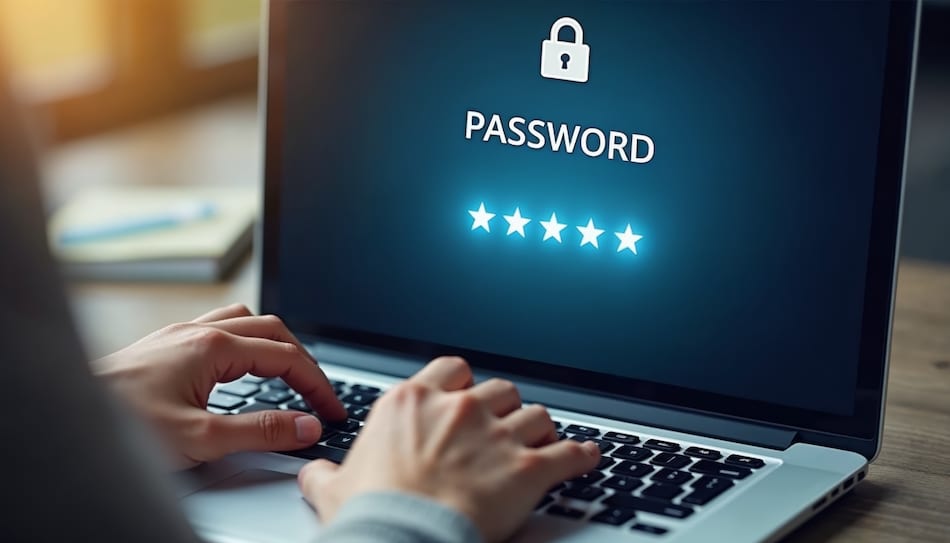Key Takeaways
Updated 9/8/23
The term social media influencer now describes a role vastly different from what it did only a decade ago. Celebrities and a handful of random bloggers could claim the influencer title back then — but that’s all changed. Now, anyone viewed as an expert in their niche can serve as an influencer, mainly because it requires a dedicated social following. However, this role comes with plenty of risks, and most influencers aren’t aware of these exposures. This post covers some of the most significant lawsuits social media influencers faced recently.
Risks Social Media Influencers Face
Before we examine lawsuits, let’s look at what influencers must traverse online. To begin, becoming a social media influencer is more than merely posting your opinions on a platform and expecting the world to welcome you with open arms. An influencer is accountable for everything they say, leaving the door open for plenty of lawsuits. Although influencer insurance works to protect these individuals, the following are three of the most significant risks social media influencers face.
- Defamation can occur purposefully or unintentionally, and it usually falls under the categories of libel or slander. Publishing a false statement, sometimes cloaked as an opinion, is known as written defamation. Transparency is the leading way to avoid this risk.
- Personal injuries, otherwise known as advertising injuries, impact the reputation of a business or person. Someone might take personal offense, or a company could suffer reputational loss, customer termination, and financial damage because of something an influencer posted online.
- Regulations are often tricky to comply with, but compliance helps safeguard influencers — and keeps lawsuits at bay. For example, the Federal Trade Commission (FTC) has mounds of poorly-followed regulations, such as using #sponsored or #ad hashtags to identify sponsored content.
7 Social Media Lawsuits
Mistakes occur on social media frequently and effortlessly. Here are five social media lawsuits that none of us will forget anytime soon — and reminders that should make all influencers consider insurance.
1. Dan Gryder’s $1 Million Defamation Judgment
Dan Gryder, a YouTube personality renowned for his swift aircraft accident analyses, was recently embroiled in a defamation lawsuit that transcended his typical aviation commentary. He was slated to attend a damages hearing on August 16, but eyewitness Dan Millican reported Gryder’s absence. Consequently, Judge John P. Chupp mandated Gryder to compensate Charles Cook to the tune of $1,081,667, subject to a 5% annual interest.
The genesis of this work-related lawsuit dates back two years when Gryder uploaded videos implying illicit activities at Cook’s Texas-based airport. Gryder levied a series of accusations against Cook, ranging from allegations of an extramarital affair to claims of misleading the FAA about his health status and intentionally selling a flawed airplane. In response to these allegations, Cook vehemently denied them all and took legal action by filing a defamation lawsuit against Gryder.
As the case progressed, Gryder’s legal representation faced challenges. His attorneys, citing financial constraints and complications introduced by Gryder himself, requested to be excused from the case. The judge consented, resulting in Gryder facing the August 16 hearing without legal counsel. When approached for comment, Gryder remained noncommittal about his future actions but hinted that the entire truth was yet to be unveiled.
On the other side, Cook, also a Boeing 777 captain and owns the Flying Oaks Airport in Fort Worth, Texas, launched the lawsuit post demands from his lawyers that Gryder retract his defamatory comments and take down certain content. Cook particularly challenged the veracity of Gryder’s video claims, spotlighting multiple inaccuracies.
Gryder and his legal team defended the contentious videos as expressions of free speech, underscoring their public service nature aimed at averting future plane crashes. However, this defense conveniently sidestepped Gryder’s direct communications with Cook and his comments on YouTube. Notwithstanding Gryder’s defense, the judge’s previous ruling from June stood firm, leading to the August 16 verdict.
2. YouTuber MrBeast Sued by MrBeast Burger
In August 2023, MrBeast (real name Jimmy Donaldson), the most-subscribed YouTuber in the world, sued Virtual Dining Concepts (VDC), the company that operates his virtual restaurant chain, MrBeast Burger. Donaldson alleged that VDC had breached their contract by failing to provide high-quality food and customer service, and by making false and misleading statements about the MrBeast Burger brand. He also accused VDC of tortious interference, claiming that they had interfered with his business relationships by making disparaging remarks about him to potential partners.
VDC responded by filing a countersuit against Donaldson, alleging that he had breached his own contract by failing to fulfill his promotional obligations and by making false and disparaging statements about VDC. They also accused him of bullying and intimidation.
The two lawsuits are still pending, and it is unclear how they will be resolved. However, the case has drawn attention to the growing popularity of virtual restaurant chains, and the potential legal challenges that can arise from these partnerships.
3. The Fyre Festival
Over three years and two documentaries have passed since the Fyre Festival incident, and lawsuits are still raging. Billy McFarland is serving a 6-year prison term and facing a case mounting $100 million for masterminding the entire get-rick-quick scam.
To recap, McFarland orchestrated an elaborate Instagram campaign involving Kendall Jenner, Bella Hadid, Hailey Baldwin, and Emily Ratajkowski. The legal documents report Jenner was paid $275,000 for a single (and misleading) Instagram post, and Ratajkowski was paid $299,000 for her promotions. Most online activities failed to disclose that it was paid advertisement, misleading followers in several ways.
The Fyre Festival held at Great Exuma in the Bahamas was a complete and utter disaster. Due to a severe lack of organization, festival-goers were mostly left to fend for themselves without adequate shelter, food, medical supplies, internet, and other accommodations, until being returned to Miami.
4. Bethany Mota and Studio 71
In one of the first influencer cases, Studio 71, a media production agency, allegedly offered Bethany Mota $325,000 to fly her and her father/manager to Kauai, Hawaii. The goal of the luxurious trip was for Mota to record an influencer video using a specific skincare product.
After submitting the video to Studio 71, the agency disapproved of Mota’s clip, claiming it didn’t include the Hawaiian footage. This footage was deemed a “crucial creative component,” and the entire reason they paid for her trip to Kauai. Studio 71 is seeking damages, declaring that it doesn’t need to pay Mota for the campaign.
5. Snap Inc. and Luke Sabbat
Snapchat regretted striking a deal with Grown-ish star Luke Sabbat, alleging Sabbat didn’t uphold his end of the agreement. Sabbat was contracted to promote glasses made by Snapchat, Snap Spectacles, in one Instagram feed and three post stories. Snap Inc. sued Sabbat, seeking $45,000 for damages to recoup the initial contractual payment and another $45,000 for damages. In the end, Sabbat only agreed to return $15,000.
6. Konus and Luke Sabbat
Unfortunately, the case with Snapchat wasn’t Luke Sabbat’s only experience with social media influencer lawsuits. Sabbat participated in a photoshoot for streetwear brand Konus, agreeing to share two permanent posts on Instagram with specific tags.
Again, Sabbat was sued for breaking the contract. This time, Konus’s parent company, Catwalk to Sidewalk Inc., brought a case against Sabbat, claiming that he never shared any promotional posts on Instagram. After already paying Sabbat’s agency $30,090 for the arrangement, Konus is seeking $40,000 in damages.
7. DJ Khaled and Floyd Mayweather
Investors in a cryptocurrency venture called Centra Tech sued two famous social media influencers, DJ Khaled and the highest-paid athlete in 2017, boxer Floyd Mayweather. Khaled touted Centra Tech as a “game changer,” and Mayweather told his followers, “You can call me Floyd ‘Crypto’ Mayweather from now on.”
Centra Tech’s founders have been charged with several federal crimes after raising $32 million. Securities and wire fraud are among the allegations. Investors are taking civil action, claiming that the farce wouldn’t have gotten so out of hand if the two influencers hadn’t promoted it.
What Is Scale Social?
In the ever-evolving landscape of influencer marketing, accountability is increasingly paramount. With the FTC tightening regulations on social media influencers and companies imposing stricter contract stipulations, the need for influencers to safeguard themselves from potential risks is more pressing than ever. To navigate this terrain effectively, influencers must be vigilant and proactive in avoiding risks that may arise.
As an innovative solution, we present Scale Social, an insurance product designed to protect influencers against lawsuits relating to their social media activities. Although it’s customized to individual influencers, this policy is similar to what media agencies purchase — but it’s more budget-friendly.
Not only does Scale Social provide vital coverage, but it lands you on the most-wanted list of influencers as most companies require a particular level of insurance coverage nowadays. Here are the product features:
- Targeted Hack Extension: Coverage up to $500 per day in the event you’re locked out of your social channels, or your channel is deleted or suspended.
- Up to $5,000,000 limits available
- Advertising exposure: A claim for breach of contract from the advertising agent or brand
- Publishing exposures: Libel (defamation), Copyright & trademark, Breach of confidentiality, Bodily injury (arising from content) – Particularly influencers promoting health foods, Negligent misstatements.
- Regulatory exposures: Failure to disclose paid endorsement. – Federal Trade Commission Investigation and Defense Costs
- Crisis management costs available (sub-limited) backed by a global crisis assistance company.
If you’d like to know more about Scale Social, we’d be happy to talk! After all, understanding the details of what coverage your company needs can be a confusing process. Founder Shield specializes in knowing the risks your industry faces to make sure you have adequate protection. Feel free to reach out to us, and we’ll walk you through the process of finding the right policy for you.
Are you sure you’re protected?
Start an application—it only takes a few minutes. Our team can review your current policies and help you fill in any coverage gaps, ensuring you’re getting the most for your money. Send questions to info@foundershield.com.









